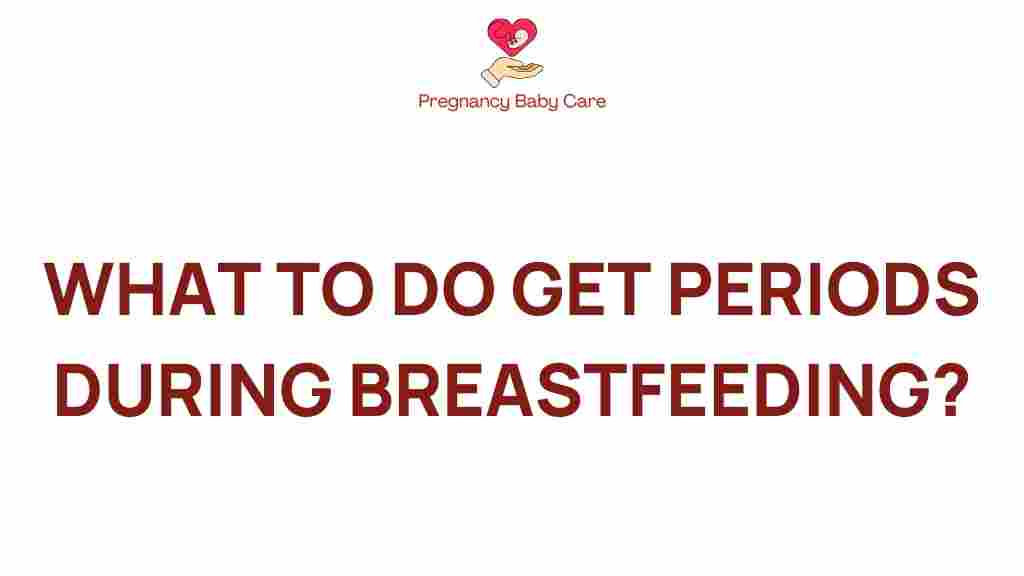As a new mother, the journey of postpartum recovery brings with it a myriad of changes, both physically and emotionally. One significant aspect of this journey is learning to navigate menstruation while breastfeeding. Understanding how your body changes and how breastfeeding affects your menstrual cycles is crucial for your health and fertility. This article will provide insights into what new mothers can expect regarding menstruation during their breastfeeding journey, hormone changes, and body changes.
Understanding Menstruation and Breastfeeding
Menstruation is a natural part of a woman’s reproductive cycle, but breastfeeding can significantly influence when and how it returns. Here are some key points to consider:
- Hormone Changes: During breastfeeding, hormone levels fluctuate. Prolactin, the hormone responsible for milk production, suppresses ovulation, which can delay the return of your menstrual cycle.
- Body Changes: Your body undergoes numerous changes postpartum, including weight fluctuations, uterine contractions, and adjustments in your hormonal balance.
- Cycles and Fertility: While breastfeeding, many women experience irregular cycles. Some may not have a period for several months, while others may notice their cycles return sooner.
When Will My Period Return?
The timing of your first period after childbirth varies widely among women and can depend on several factors:
- Exclusivity of Breastfeeding: Women who exclusively breastfeed are more likely to experience a delay in the return of their menstrual cycles. This delay can range from several months to over a year.
- Supplemental Feeding: If you introduce formula or solid foods, your menstrual cycle may return sooner.
- Individual Differences: Each woman’s body is unique. Genetics, overall health, and lifestyle can all play a role in the timing of menstruation.
What to Expect During Your First Period Postpartum
Once your period returns, you may notice some differences compared to your pre-pregnancy cycles. Here are some common experiences:
- Flow Changes: Your menstrual flow may be heavier or lighter than before. Some women report heavier bleeding during their first few periods postpartum.
- Cramps: Menstrual cramps may feel different after childbirth. Some women experience more intense cramps, while others find them to be milder.
- Cycle Length: The length of your cycle may vary. It might take a few months for your cycles to regulate and return to what is normal for you.
Managing Menstruation While Breastfeeding
Managing your period while breastfeeding can be challenging, but there are several strategies you can employ:
- Stay Prepared: Keep menstrual products on hand, such as pads or menstrual cups, to manage your flow effectively.
- Monitor Your Cycle: Keeping track of your menstrual cycle can help you anticipate your period and manage any symptoms. Consider using a cycle-tracking app.
- Hydration and Nutrition: Staying hydrated and maintaining a balanced diet can help ease menstrual symptoms and support your overall health.
Postpartum Fertility and Breastfeeding
Many new mothers wonder about fertility during breastfeeding. While breastfeeding can suppress ovulation, it is still possible to become pregnant. Here are some important points to remember:
- Fertility Awareness: Your fertility may return before your first period. If you are not planning on getting pregnant again soon, consider discussing contraceptive options with your healthcare provider.
- Breastfeeding as Contraception: The Lactational Amenorrhea Method (LAM) is a natural form of contraception for breastfeeding mothers. It is effective only if you are exclusively breastfeeding and your periods have not yet returned.
- Consult with Your Doctor: If you have concerns about your fertility or menstrual cycle, seeking advice from a healthcare professional can provide you with personalized guidance.
Common Concerns and Troubleshooting Tips
Here are some common concerns new mothers may have regarding menstruation and breastfeeding, along with tips to address them:
- Irregular Cycles: It’s normal for your cycles to be irregular in the months following childbirth. If cycles remain irregular for an extended period, consult with your healthcare provider.
- Low Milk Supply: Some mothers worry that their milk supply may decrease when their period returns. This is often not the case, but if you notice a change, consult a lactation consultant.
- Emotional Changes: Hormonal fluctuations can affect your mood. If you experience significant emotional distress, consider talking to a professional for support.
Conclusion
Navigating menstruation while breastfeeding can be a complex experience for new mothers. Understanding the interplay between breastfeeding, menstruation, and postpartum recovery is essential for your health and well-being. Hormone changes, body changes, and the return of your cycles can all impact your experience, but knowing what to expect can help you feel more prepared.
Remember, every woman’s journey is unique. If you have concerns about your menstrual cycle, fertility, or overall health during this period, do not hesitate to reach out to your healthcare provider for guidance and support. And for additional resources on postpartum health, consider visiting this helpful website.
As you embrace the challenges and joys of motherhood, know that you are not alone in this journey. With support and knowledge, you can navigate menstruation and breastfeeding successfully, prioritizing your health and your baby’s well-being.
This article is in the category Health and created by PregnancyBabyCare Team
